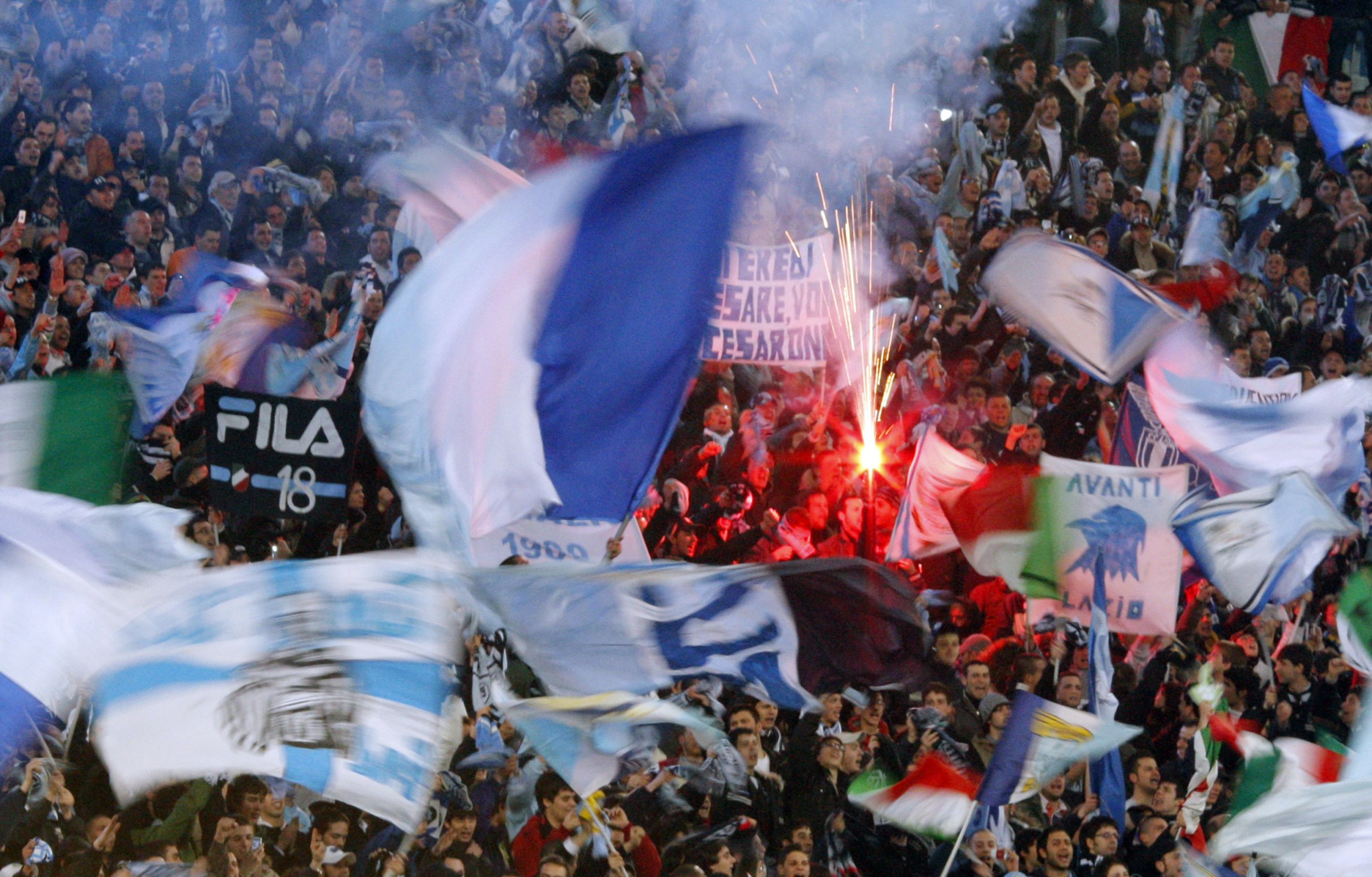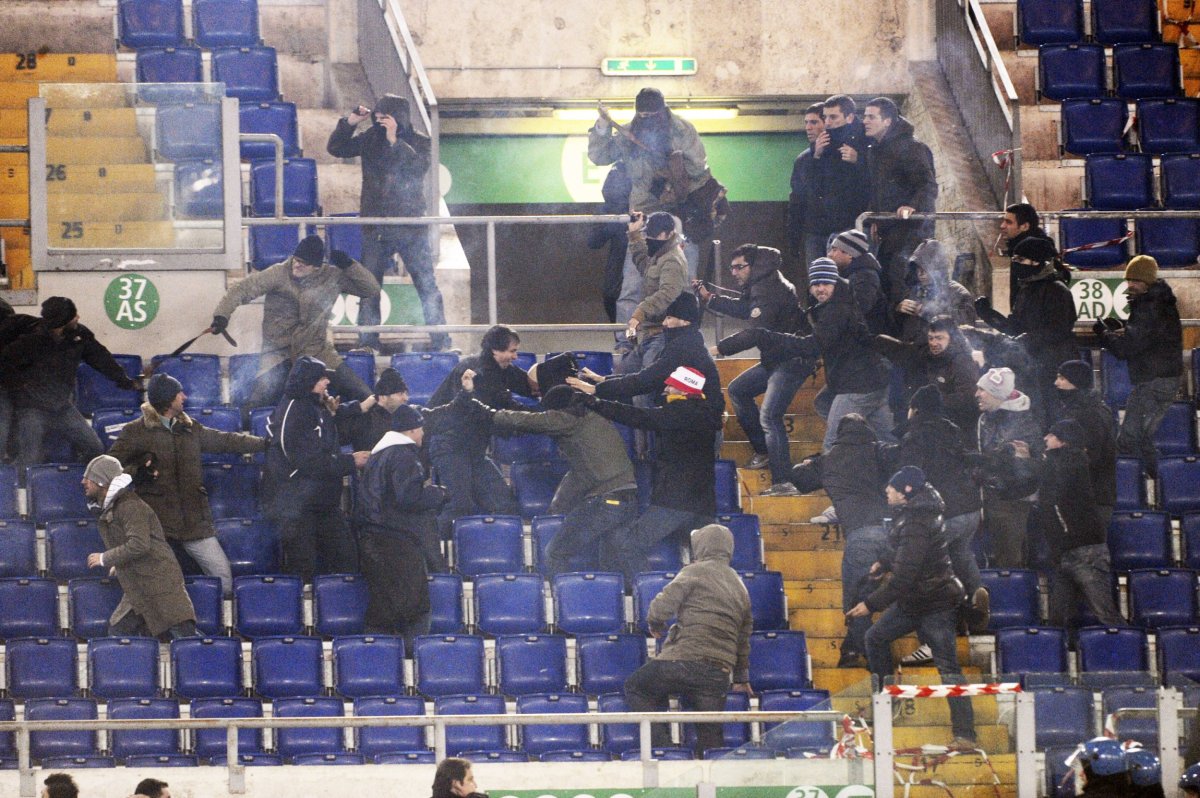
Fans of the Lazio soccer club in Italy have circulated a letter suggesting that women should not be allowed to sit in the most famous part of the team's stadium.
The hardcore "ultra" fans, collectively known as the "Irriducibili," distributed the letter in the team's Olympic Stadium in Rome at the first game of the new season, the BBC reported.
The message said that the Curva Nord, a famous stand in the arena, was a "sacred place" where women should not be allowed. The letter said that women should use other parts of the stadium instead.
The ultras seemed to have an issue with couples as much as with women directly, accusing female fans of only going to the soccer stadium with their boyfriends or husbands as an alternative date idea.
"Those who choose the stadium as an alternative to the carefree and romantic day at the Villa Borghese [a Roman historic house and park] should go to other parts," the letter said, arguing that "women, wives and girlfriends" should not sit in the first 10 rows of the stand. These rows, the letter said, were the trenches and not suitable for female fans. The message was signed "Direttivo Diabolik Pluto," one of the leaders of the Irriducibili ultras.
The Irriducibili were formed in 1987 and rapidly became Lazio's most influential ultra group, taking the place of the Eagles Supporters who came before them. All Italian clubs have an ultra group, and the larger teams can have dozens.
The ultra movement emerged in the 1960s and has since become an integral part of the Italian game, with ultra leaders reportedly making huge amounts of money through fake merchandise sales, ticket touting and drug dealing, often with the tacit approval of the clubs which are well aware of the power the ultras wield.

Ultra groups battled for control of the "curva," the part of the stand behind the goal posts where the poorest but most loyal fans traditionally sat, making it a "sacred" part of the stadium, in the Irriducibili's words.
Though the early gangs borrowed imagery and slogans from leftist paramilitary movements, these days the fans often have links to or sympathies with neo-Nazi and far-right political groups.
Some display Nazi flags and racist banners at matches, and last season Lazio was fined after some supporters wore stickers portraying Anne Frank on a shirt of city rivals Roma along with anti-Semitic messages. In 1998, the Lazio ultras displayed a banner addressing their rivals, reading: "Auschwitz is your homeland, the ovens are your homes."
Their members also fight with other fans. Ultra groups have reportedly been behind most football-related violence in Italy over the past 50 years, and are responsible for numerous deaths.
Last season, traveling Roma fans attacked Liverpool fans at a match in the U.K., wielding bottles, belts and hammers, leaving one man in a coma. In 2012, fans of British team Tottenham traveled to Rome for a game against Lazio, where they were attacked by Roma ultras in bars before the game. One supporter was stabbed and seriously injured, while dozens of others escaped with light injuries.
Uncommon Knowledge
Newsweek is committed to challenging conventional wisdom and finding connections in the search for common ground.
Newsweek is committed to challenging conventional wisdom and finding connections in the search for common ground.
About the writer
David Brennan is Newsweek's Diplomatic Correspondent covering world politics and conflicts from London with a focus on NATO, the European ... Read more
To read how Newsweek uses AI as a newsroom tool, Click here.








